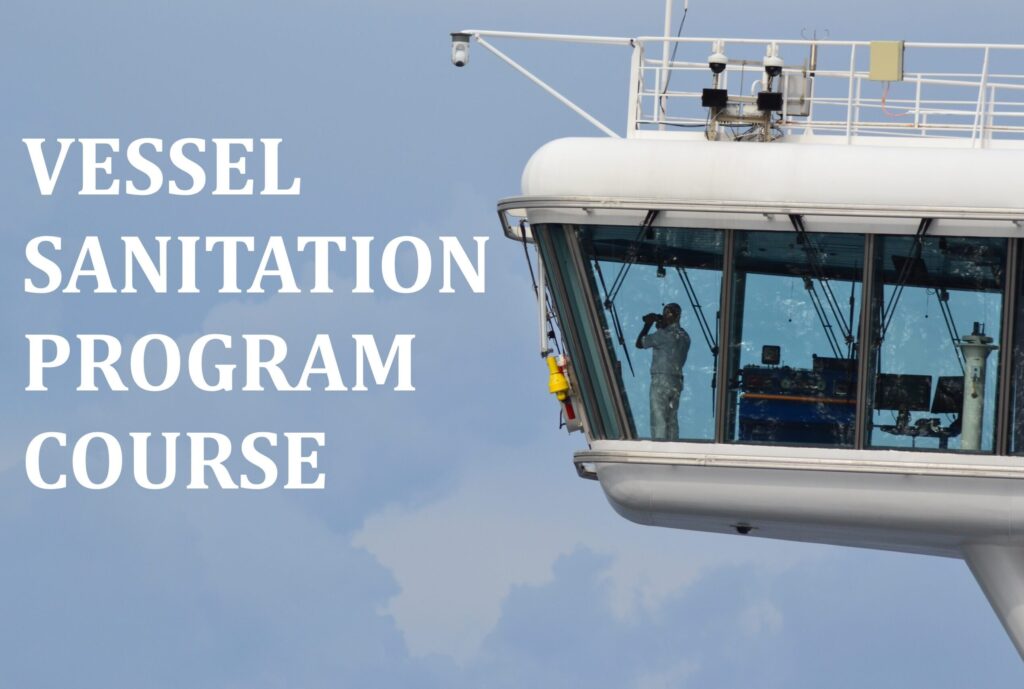The USPH Vessel Sanitation Program: Safeguarding Health at Sea

The USPH Vessel Sanitation Program: Safeguarding Health at Sea
Introduction
In the world of maritime operations, maintaining health and safety aboard a vessel is of paramount importance. The U.S. Public Health Service (USPHS) Vessel Sanitation Program (VSP) plays a critical role in protecting the health of passengers and crew members aboard cruise ships calling on U.S. ports. This program sets stringent standards for hygiene, water quality, food safety, and disease prevention, ensuring vessels remain compliant with public health expectations. In this article, we explore the significance of the VSP, its components, and its relevance to maritime personnel.
Overview of the Vessel Sanitation Program
The Vessel Sanitation Program was established in the 1970s following a series of disease outbreaks on cruise ships. Administered by the Centers for Disease Control and Prevention (CDC), the program aims to prevent and control the introduction, transmission, and spread of gastrointestinal illnesses, particularly norovirus, on passenger vessels.
The VSP applies to cruise ships that:
- Have 13 or more passengers,
- Have an international itinerary with a U.S. port of call,
- Are under foreign registry.
The program includes unannounced inspections, disease surveillance, and sanitation training for cruise ship staff. Ships are scored on a 100-point system, with scores of 85 or higher considered satisfactory.
Key Areas of Vessel Sanitation
VSP inspections and protocols cover a wide range of operational areas, including:
- Water Safety:
- Testing and treating potable water,
- Maintaining proper storage and distribution systems,
- Preventing backflow and cross-connections.
- Food Safety:
- Ensuring proper food storage, handling, and preparation,
- Maintaining cold chain integrity,
- Preventing contamination through hygiene protocols.
- Waste Management:
- Proper disposal of sewage and solid waste,
- Sanitation of waste processing equipment,
- Prevention of environmental contamination.
- Housekeeping and General Cleanliness:
- Regular cleaning of public areas and crew quarters,
- Use of appropriate disinfectants,
- Pest control measures.
- Medical Reporting and Disease Surveillance:
- Prompt reporting of illness to CDC,
- Isolation procedures for sick individuals,
- Maintenance of medical logs and outbreak response plans.
- Employee Hygiene and Training:
- Training on hand hygiene, food safety, and sanitation,
- Health screening before duty,
- Use of protective gear where applicable.
Importance of Vessel Sanitation
Vessel sanitation is essential not only for protecting health but also for ensuring operational continuity and customer satisfaction. Outbreaks of gastrointestinal illnesses, especially norovirus, can lead to severe consequences, including:
- Passenger Illness and Reputational Damage: Even a single outbreak can damage a cruise line’s reputation and deter future bookings.
- Operational Disruptions: Sick passengers and crew can necessitate changes in itinerary, quarantines, or early returns to port.
- Financial Losses: Illness-related cancellations, refunds, and potential lawsuits can have significant financial impacts.
- Public Health Risk: Unchecked disease outbreaks can spread internationally through ports and airports.
Maintaining strict sanitation practices helps to mitigate these risks and ensures a safer environment for all on board.
Relevance to Maritime Personnel
For maritime personnel, especially those working on cruise ships and passenger vessels, understanding and implementing sanitation protocols is a daily responsibility. The importance of the VSP extends across several job functions:
- Ship Officers and Management:
- Must ensure the ship meets all VSP standards,
- Oversee crew compliance with sanitation protocols,
- Respond to CDC findings and take corrective actions.
- Medical Personnel:
- Monitor and report illnesses,
- Implement isolation protocols,
- Educate crew on disease prevention.
- Catering and Food Service Staff:
- Adhere to hygiene and food safety standards,
- Maintain clean food preparation areas,
- Monitor food temperatures and storage.
- Housekeeping Staff:
- Ensure regular disinfection of high-touch surfaces,
- Monitor cleanliness of guest and crew areas,
- Use approved cleaning products.
- Engineering and Technical Crew:
- Maintain water treatment and distribution systems,
- Ensure waste systems are functional and up to code,
- Address any infrastructure deficiencies noted during inspections.
Every department aboard a vessel contributes to maintaining a sanitary and safe environment. Ongoing training and communication are crucial to sustaining high standards.
Enforcement and Inspection
VSP inspections are unannounced and comprehensive. Inspectors evaluate the ship’s compliance with health standards, including:
- Observation of food handling,
- Examination of water treatment logs,
- Review of medical records,
- Inspection of public restrooms, galleys, and storage areas.
A ship receiving a score below 85 must correct deficiencies and is subject to reinspection. Continued non-compliance may lead to penalties, increased scrutiny, and potential exclusion from U.S. ports.
Continuous Improvement and Training
To support the implementation of sanitation practices, the VSP offers training resources and guidelines for cruise lines. Topics include:
- Norovirus outbreak prevention,
- Handwashing protocols,
- Food safety management systems,
- Water system maintenance.
Many cruise lines incorporate these materials into their regular staff training, helping reinforce a culture of hygiene and vigilance.
Conclusion
The U.S. Public Health Service Vessel Sanitation Program is a cornerstone of public health in the cruise ship industry. By setting high standards and enforcing them through inspections and training, the VSP plays a critical role in preventing illness and ensuring the wellbeing of passengers and crew. For maritime personnel, understanding the importance of vessel sanitation is not just a regulatory requirement but a moral and professional responsibility. Through diligence, collaboration, and continuous education, the maritime industry can uphold the highest standards of health and safety on the high seas.
The Maritime Security Institute of Canada offers a course in the Vessel Sanitation Program.